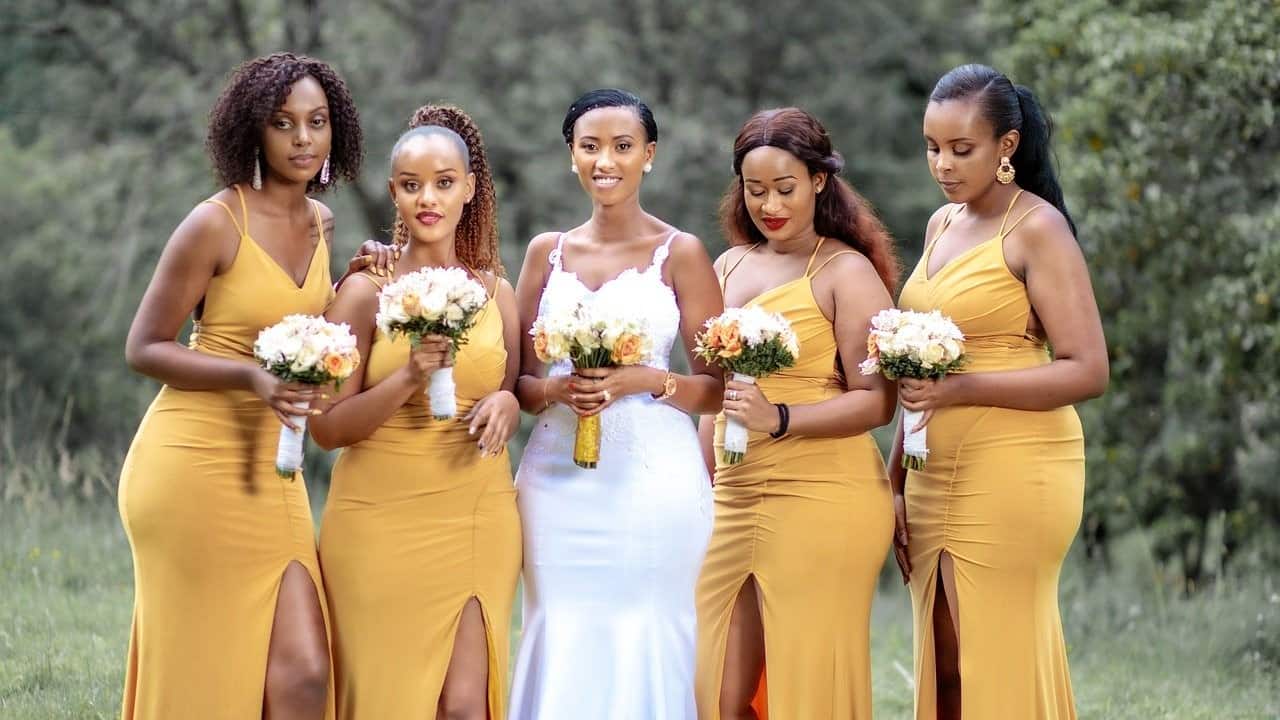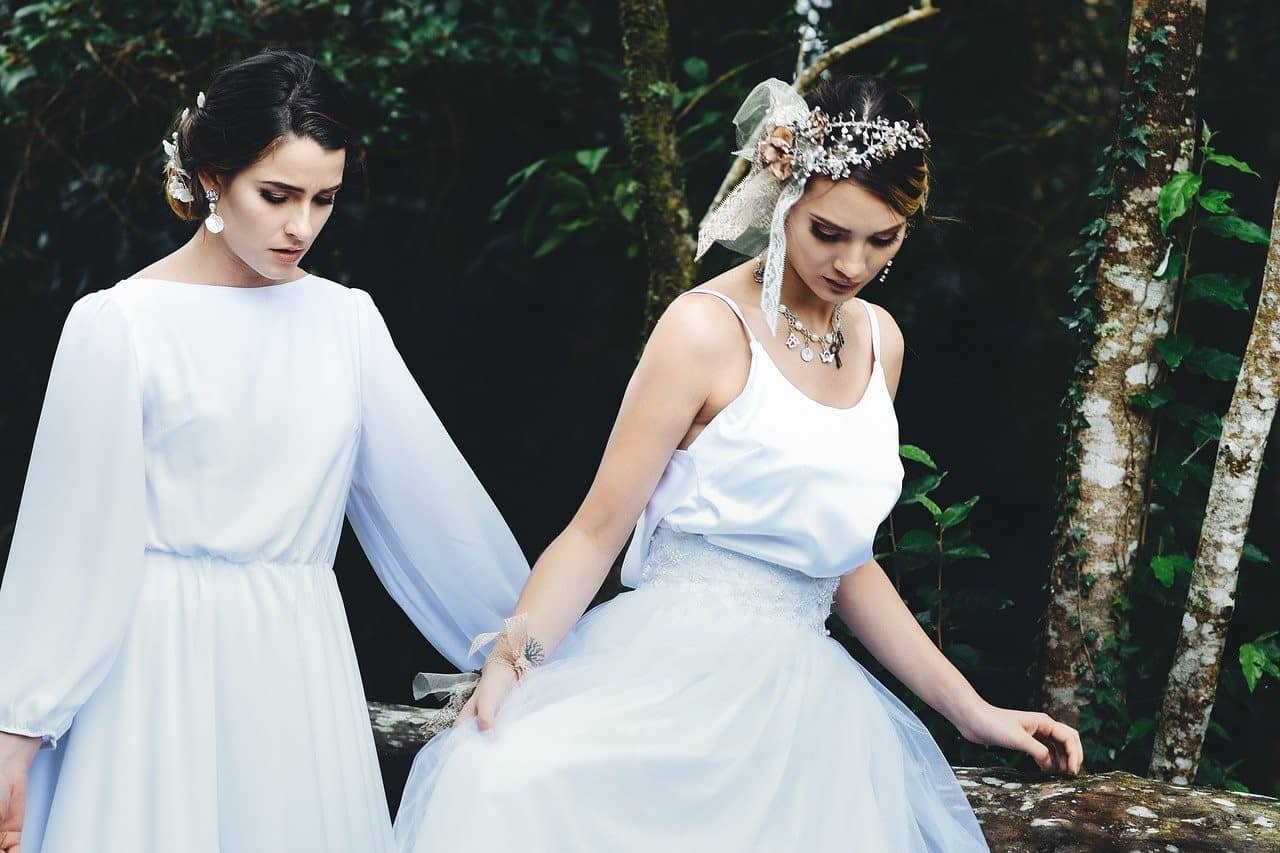Choosing bridesmaids can be both the easiest and hardest thing to do when planning a wedding. There are several questions to answer to help make the best decisions when it comes to picking your bridesmaids. A frequent query that many brides grapple with is the marital status of their prospective bridesmaids.
Can I have my married friend as a bridesmaid in my wedding? Yes, of course – anyone can be a bridesmaid regardless of their age, civil status, and sexual orientation. What matters is their closeness and relationship to the bride herself.
Being chosen as a bridesmaid is undoubtedly an honor. As you tread this path, there might be a whirlwind of other frequently asked questions surrounding the role and nature of bridesmaids. Remember, the primary goal is to surround yourself with those who mean the most on your special day.
Frequently Asked Questions About Bridesmaids
1. Can Bridesmaids be Married?

Yes, married women can be bridesmaids. A bridesmaid is usually a young woman who is a close friend or relative of the bride, regardless of their civil status. The term “bridal attendants” can also be used if that is what the couple prefers.
A girl who is too young to be married can also be chosen as a junior bridesmaid. In other cultures, these junior bridesmaids are often in charge of carrying and throwing flowers during the wedding procession. However, in English-speaking countries like the United States, this role is reserved for the flower girl.
2. What are the Responsibilities of a Bridesmaid?
A bridesmaid has seven primary responsibilities:
- Assist in the planning and financing of the bridal shower and bachelorette party
- Assist with wedding-related tasks, including external communications and working out the logistics of the ceremony
- Accompany the bride as she buys her dress and in succeeding fittings
- Purchase a bridesmaid dress and other necessary accessories
- Be present for the bridal shower, bachelorette party, rehearsal, rehearsal dinner, and other wedding-related activities
- Attend the ceremony and reception
- Make a speech at the rehearsal dinner or reception
Some tasks, such as numbers 3 and 7 on the list, are done upon the request of the bride herself. There may be additional tasks given that are not included on the list; likewise, some of the tasks in the list may not be necessary. This all varies per bridal party and per couple.
However, the presence and support of a bridesmaid is essential not only to the success of the wedding ceremony itself, but also to the emotional wellbeing of the bride.
3. What are the Expenses that Come with Being a Bridesmaid?
There are three main expenses associated with being a bridesmaid:
- Travel costs – this includes the transportation and accommodation fees. The bridesmaid’s location and the location of the venue influence the travel costs.
- Bridesmaid attire – this includes the dress, shoes, and accessories the bridesmaid will wear for the ceremony.
- Party planning – given that one of the primary responsibilities of being a bridesmaid is assisting in the planning of wedding-related parties such as bachelorette parties and bridal showers, they are expected to contribute money to make it successful.
Back then, the bride and her family would shoulder most, if not all, of the bridesmaids’ expenses. Nowadays, bridesmaids are expected to shoulder their own expenses. Again, this depends on the couple, their budget, and their plans for the bridal party.
4. What is a Maid of Honor?

The maid of honor is simply just the chief bridesmaid. When carrying out their responsibilities and duties for the wedding, the maid of honor leads and coordinates the rest of the bridesmaids.
However, the term used to refer to the chief bridesmaid changes if the person chosen is married. Instead of a maid of honor, they are called a matron of honor.
The maid of honor can choose a different term according to her preference. A few options are “best woman,” “woman of honor,” or she can even forgo a title altogether.
5. What Are the Responsibilities of a Maid of Honor?
Besides the responsibilities of being a bridesmaid, a maid of honor has a couple of additional responsibilities:
- Lead the bridesmaids in wedding-related activities and planning
- Assist the bride in preparing for the wedding ceremony, such as getting dressed and calming her nerves
- Be one of the official witnesses of the wedding and sign the marriage license
- Emotionally support the bride by providing a shoulder to lean on.
6. Can a Man be a Maid of Honor?
Yes, a man can be chosen for the role of a maid of honor. This typically happens when the woman’s closest and most trusted relative or friend is a man. They will carry out the same duties and responsibilities as a female maid of honor.
If the man you have chosen is uncomfortable with the term ‘maid of honor,’ there are multiple options to choose from. You can go with “bridesman,” “man of honor,” “honor attendant,” “best person,” and even come up with a personal and witty title that encapsulates your relationship.
You may want to reconsider the logistics of events that are traditionally gender-specific, such as bachelorette parties and bridal showers. A simple way to go around this is to make it inclusive of all genders.
7. Can I Have Two Maids of Honor?
Yes, you can have two maids of honor. In fact, you can have more than two maids of honor. It depends on the couple and what works best for them. In large ceremonies, having multiple maids of honor can be especially advantageous to the planning process.
8. Can I Have No Maid of Honor?
Yes, it is possible to have no maid of honor. This is a logical choice for small and intimate wedding ceremonies. Some couples even go without a bridal party.
9. Can I Have Both a Maid of Honor and a Matron of Honor?
Yes, you can have both. A common combination for a maid of honor and a matron of honor duo is the bride’s mother and sister, or the bride’s mother and best friend.
10. What is the History Behind Bridesmaids?
Married women being allowed to be bridesmaids hasn’t always been the case. Traditionally, they had to be unwed but of marriageable age.
Historians agree that the concept of a bridal party could be seen as early as the time of ancient Rome. Roman law enforced a requirement of 10 witnesses for every wedding. Bridesmaids and groomsmen wore the same garments as the couple so as to confuse and prevent vindictive spirits or jealous suitors from causing harm to the couple.
Traditionally, the matron of honor also serves as a role model for the bride-to-be. In ancient Roman culture, the matron of honor is required to have a loving husband and to have only married once; she serves as a figure of fidelity and obedience which the bride will look up to.
Another possible source of the concept of bridesmaids could be found in a story from the Bible of Jacob’s marriage with Leah and Rachel. Both women brought their own maids or servants to their ceremonies.
Final Thoughts
So, can a bridesmaid be married? Yes, bridesmaids can be anyone, regardless of their age, civil status, and sexual orientation. At the end of the day, the most important thing to consider is that they are close to and trusted by the bride to carry out their responsibilities for the wedding.